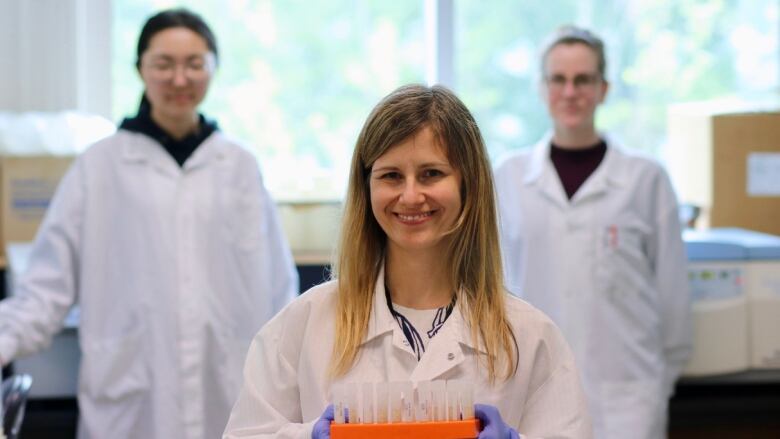B.C. researchers testing wastewater to help detect COVID-19
Provincial Health Officer Dr. Bonnie Henry calls idea 'exciting'

Researchers have a new surveillance tool that could give them a head start when it comes to coronavirus outbreaks: our wastewater.
The B.C. Centre for Disease Control is leading a pilot project to test B.C. wastewater for evidence of COVID-19.
"You can use [wastewater] to survey what people are consuming," said Natalie Prystajecky, who is leading the project.
"In this case it could serve as an early warning system. It could show that there's a lack of cases."
It's a tactic that's been used in other parts of the world, letting health officials know just how prevalent the virus is.
In Italy, researchers found traces of the virus in samples from 2019 before the pandemic was declared.
Useful for 2nd wave
Provincial Health Officer Dr. Bonnie Henry has spoken in support of the idea of testing wastewater.
"It's kind of an exciting thing. We have some expertise that's quite unique here," Henry said Tuesday.
"Where I think it's going to be helpful for us is if we start to see cases, one or two in a small communityor we're worried about transmission in a community.".

For now, researchers have been drawing samples from Vancouver and Surrey but with less than 200 confirmed cases provincewide, they haven't found any trace of COVID-19 yet.
Prystajecky said with the caseload low, that makes sense.
"As we go into the second wave, we could use it for communities that can't access testing easily," Prystajecky said.
"You can test an entire population without having to use swabs, which are a limited resource right now."
Officials say they'll have a better understanding of the data they've collected by the fall.
The project will run until at least December.
With files from Jon Hernandez












_(720p).jpg)


 OFFICIAL HD MUSIC VIDEO.jpg)
.jpg)



























































































